Is fin-tube baseboard heat obsolete?
I have just finished gutting my 24’X24′ single-story cottage and am ready to install a new heating system. I prefer hot water for its quiet, even performance, but I can’t afford a radiant-floor system. This home will be a well-insulated, one-room living space with a bedroom in the basement. For such a simple, undivided structure where I also need good heat in the basement, is old-fashioned fin-tube baseboard still worth considering? I know the sheetmetal tends to get beat-up over time and that there are some limits as to furniture placement, but those are not big issues for me. I understand the appeal of radiant-floor installations, but for those of us on a tight budget, is there anything wrong with a well-designed baseboard system when the alternative is sticking (reluctantly) with forced-air?
Thanks.
John in Pittsburgh
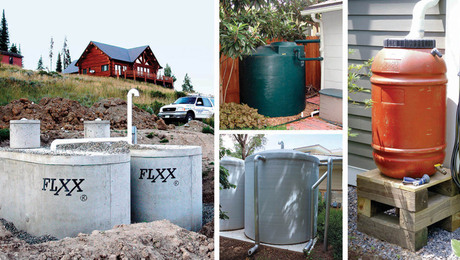


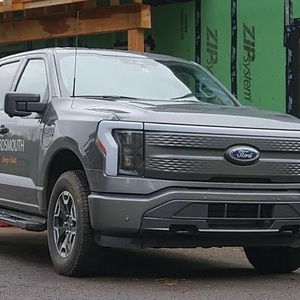
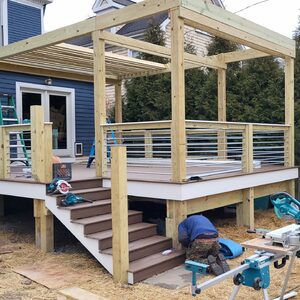
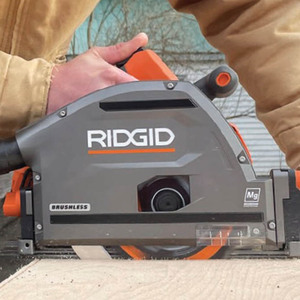









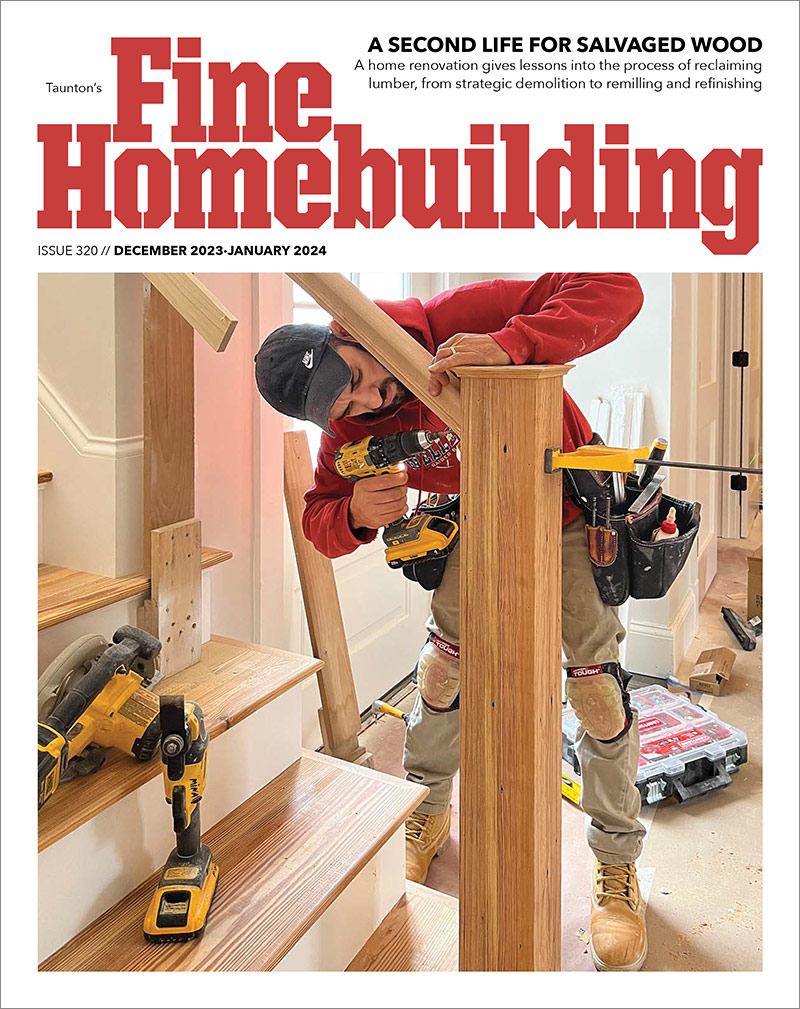
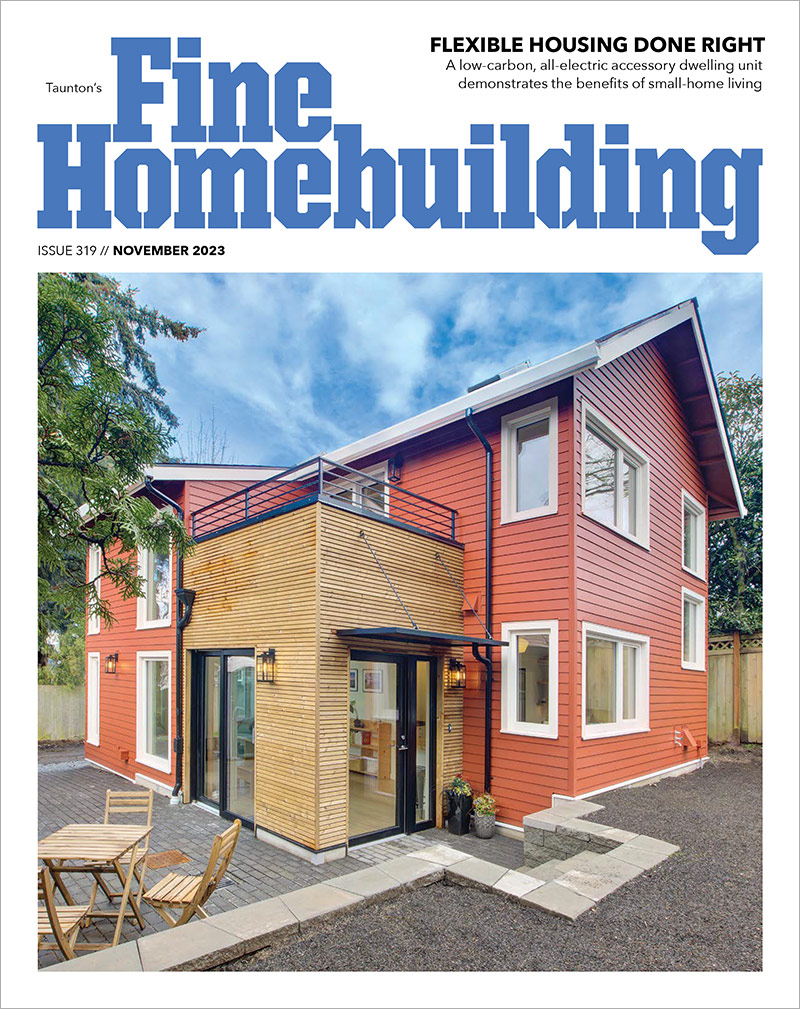

Replies
Nothing wrong with it in my opinion.
There are some really nice looking wall units available from Europe now days, too. You're not just stuck with the type of wall unit you describe.
If I'm not mistaken there is usually an advertisement in FHB for a...might be a Scandinavian sounding company (maybe I should say Scandinavian LOOKING company) that makes and sells such radiant heat fixtures. But if nothing else, brother Google will point you in the right direction.
I have installed both hydronic with fin radiators and radiant heat in 2 different new homes similar in size in the last 3 yrs. The radiant was about 30% higher and included a heat pump instead of straigt A/C. Both systems work fine but the radiant is more efficient.
k
Holy smokes, man. You still hanging around here? Haven't seen your name in a coon's (asssses) age.
We have a hybrid system - some radiant, some hydronic baseboard and some fin-tube built into cabinetry / furred spaces. Over time, we plan to convert some of the baseboard to these covers - http://go-overboard.com/ (especially if they become more affordable).
Jeff
What is the recommended minimum water temp for these units? I assume it is a little higher than what is recommended for hydronic floor heating
Do you have any pics or details on how you put the baseboard in your cabinets?
"It is what it is."
"Do you have any pics or details on how you put the baseboard in your cabinets?"
This one is in the master bath:View ImageView Image
View ImageView Image
The grill section is screwed on from behind (under the toe kick) at each end with a magnetic catch in the middle. Grilles are from Kees Inc. (Grecian)
Jeff
Edited 9/1/2008 5:41 pm ET by Jeff_Clarke
That is beautiful! A few more questions if you don't mind.
Did you treat the top of the enclosure of the slant fin to prefent it from drying out? I have seen this happen to the 100's of radiator covers I have built for hosp. and schools.
What sofware did you use to draw the cab?
"It is what it is."
Just one slight quibble. Fin tube enclosures are convectors, not radiation.
Nice detail though.
I stand convected. Actually they are both radiation and convection.
I've been using this - http://arriscad.com/ since 1985. This - http://builderscad.com/ is a related version. One of the great things about ARRIS is an function called 'motion control interpreter' where holding down a mouse button and making a mouse movement actually executes commands - makes you blisteringly fast because you can customize it:
ARRIS Motion Control menu:View Image
The drawings above were post-produced in response to the question with color and captions using a free software called EZ - http://www.ezmeeting.com/downloads.shtml which is worth checking out because it is very easy to use and doesn't cost anything. It take a couple of hours to learn it .. and, for instance, as a builder you could take a drawing submitted by an architect in PDF format, highlight areas add notes and export to jpg back (without having to buy Acrobat etc.)
You can also use it to have an interactive on-line meeting with shared workspace.
I haven't put a reflecting piece on the underside top of the enclosure - and I probably should. While there is plenty of heat in the room the cabinet parts just don't seem to get all that hot. But - you're right it should have some protection to avoid drying out.
Jeff
Edited 9/2/2008 1:51 am ET by Jeff_Clarke
"I stand convected." Clever :)
But fin tube doesn't radiate. Stand about 2 feet away and hold your hand at the same level as the fin tube. Now see if you can feel any heat. Try the same thing with cast iron and then feel the heat.
When we set reset curves on tekmar controls, we have to program what type of heat emitter is being used. ie; convector, radiator, fan coil, infloor. Each one requires a different water temp.
As long as the humidity in the house stays constant, I don't see having a problem with the cabs. Some reflective might help with the temps inside the cabs.
Have you considered Electric Thermal Storage heating using off peak power rates?
Low initial investment, easy installation. I'm seriously considering this type of heat for my next, well insulated, home.
Even though electricity is still generated mainly by natural gas and oil, the near future seems to hold relatively lower cost electricity from other sources.
http://www.steffes.com/offpeak/
Otherwise my vote would be for fin tube baseboard heat and any similiar gas fired hydronic heat units.
Either of these systems work well with wood stoves, another important consideration for me, while radiant floor does not.
low initial investment?a client of mine using that unit in NH paid about $10k for the unit.is your local utility subsidizing it?-------------------------------------
-=Northeast Radiant Technology=-
Radiant Design, Consultation, Parts Supply
http://www.NRTradiant.com
a client of mine using that unit in NH paid about $10k for the unit.
Which unit? They make several sizes. I haven't checked prices lately but my recollection is that they start at about $1,500.
What kind of heat source do you use for your radiant systems? Is there an electric boiler available with thermal storage capacity?
It looks like we're going to be relying on electricity, more and more so I'm sincerely interested in anything new of that kind.
Edited 9/1/2008 1:53 pm by Hudson Valley Carpenter
I'm not sure off the top of my head, but I don't think you get a ton or two of ceramic heat storage for $1500 unless you get serious subsidies (unless they have units with far less storage). My client's subsidy was on the rate end.. with that unit installed and a phone switch to the power company so they could charge it up at night, his electric rate was something ridiculous like .03/kwh. pretty sweet, they get off-peak usage and he gets really cheap electric heat.we use everything. This kind of off peak storage is one method, and heat pumps are another way of utilizing electric beyond the 1 for 1 electric resistance heating. Electric too will get expensive as other fuels rise in price, so i think in the end it will be heat pump technology that wins.but not just yet, not for everyone.-------------------------------------
-=Northeast Radiant Technology=-
Radiant Design, Consultation, Parts Supply
http://www.NRTradiant.com
Electric too will get expensive as other fuels rise in price
Considering that less than one quarter of our current usage is generated by petroleum products, oil and nat gas, with a likely decrease in that percentage, it seems likely that the price of electricity will rise at a much slower rate than the price of other heating fuels.
I don't recall the weight of the tiles in the small unit I looked at, just that it was supposed to hold sufficient btu for the super-insulated example I tried in the software.
Edited 9/2/2008 2:21 am by Hudson Valley Carpenter
the point isn't that electric is made with fossil fuels.the point is that as people shift from fossil fuels to electric, demand is raised.This raises the costs, as additional generation is needed. we just saw a 30% jump in commercial electrical rates here in ME this year. residential can't be that far behind.not saying electric is a bad choice; just that the "energy wars" are not over, not by a long shot.this is why hydronics rocks ;) you can flip whenever you like!-------------------------------------
-=Northeast Radiant Technology=-
Radiant Design, Consultation, Parts Supply
http://www.NRTradiant.com
http://en.wikipedia.org/wiki/Image:Sources_of_electricity_in_the_USA_2006.png
Please have a look at this chart. Then tell me how the price of petroleum products will have an equal effect on the price of electricity.
What fuel source is used to produce ME's electricity? If it isn't natural gas then the rise in commercial rates must be driven by other costs or by an attempt to balance rates more fairly for homeowners.
this is why hydronics rocks ;) you can flip whenever you like!
What can you flip? And what are the costs?
Supply and Demand. That's how. again, it doesn't matter how the electricity is generated; as people (like you) flock to it, demand will outstrip supply. adding generation capacity is not cheap. supporting the infrastructure is not cheap. the price will rise.Equal? Who knows. fossil fuels are going down again right now. Electricity isn't. everything rises and falls over time.You can change fuel with hydronics for the cost of a new heat source, should economics change drastically. that's part of the benefit of being a wethead ;) heat sources are not cheap, but if fuel price escalate in one area badly, you are not locked in forever.-------------------------------------
-=Northeast Radiant Technology=-
Radiant Design, Consultation, Parts Supply
http://www.NRTradiant.com
All your thinking is self serving. You can't even make logical deductions from a simple pie chart.
You can change fuel with hydronics for the cost of a new heat source
HA! That's right, you'll have to after you've already sunk so much money into that system.
Radiant floor is wonderful but its value to a super-insulated home is much less than to other types where the heat loss is substantially higher.
As for you judging people who don't agree with you as a flock, all that's left for me to say is get the flock outta here.
I have not checked the price of coal to see if it has gone up yet or not but there are price pressures on it.And it is very difficult to get a permit to built a new coal plant. KS just turned one down, after it met all requirement, because it MIGHT affect "globle warming". And the price of plants that are being built know are going way up in price..
.
A-holes. Hey every group has to have one. And I have been elected to be the one. I should make that my tagline.
"You can change fuel with hydronics for the cost of a new heat sourceHA! That's right, you'll have to after you've already sunk so much money into that system."Hydronic heating is not just radiant but also include the basebaord and even hydro-air.One of the great advantages of hydro is that it is realatively easy to zone the house.But it is only the method of delivering the heat from the source to the house. You still need an energy source.And that can be solar, oil, gas, wood, electric, ground source heatpump. Not sure, but I think that there might be air to hydro heat pumps.And last, but not least.Electric heat storage hydro system.http://www.steffes.com/offpeak/comfortplus/hyd_overview.aspx
.
.
A-holes. Hey every group has to have one. And I have been elected to be the one. I should make that my tagline.
what?are you confusing me with someone else? the word "flock" never crossed my lips. I never even insinuated such a thing. I'm not sure what you're responding to.I'm just saying a couple of things:1. Supply and Demand is Inviolate. If you think the world will allow a great disparity in energy costs electricity vs other methods, more power to you. I don't agree. If electricity were that much cheaper than the alternatives for long, everyone would switch (think electric vehicle conversions) and suddenly we're in the same boat, but with electrical generation and transmission as our new "bottleneck" unless mass investment changes that fact (which would again raise the price). I think ultimately ALL energy will be expensive, including electricity, and things like heat pump technology will be a necessity and a solid economic winner because you get more than you pay for. buying one unit of heat won't make any sense when you can buy one and get two or three.but if you think the pie chart is the be all end all of the discussion, carry on then. I was just offering an opinion, not looking to start a fight.2. I said "hydronics", not "radiant floor heating". The argument against radiant floor in superinsulated houses is one I've posted myself several times, nearly every time someone talks about a superinsulated home and radiant in fact, and a discussion of that is stock verbage in all my quotes. You couldn't find anyone who promotes that fact more than me. In superinsulated houses a few panel radiators, a little ceiling heat, even baseboard can make sense. Heck, you can build houses that need cooling in the winter if you really try.But if you need heat, using water as your transmission system (whether in the floor or not) allows you to change fuels if economics require you to. Say electricity gets expensive enough that you need to switch to wood pellets. or you live in an area with access to cheap biofuel. whatever.. doesn't matter, hydronics don't care how you heat the water.but again- that's "hydronics", not "radiant floor heating". Also I didn't say buying a new heat source was cheap; I said "if economics dictate", meaning it makes economic sense to do it, cheap or not. If propane doubles in price again, for instance, it would be worth me turning off my propane boiler and putting in an electric boiler (at current prices, at least), and it would pay for itself in fairly short order even if the switch cost me good money.it is a hell of a lot cheaper than gutting and retrofitting a hydronic system later, as many, many, many people stuck with electric heating systems from the 70's and early 80's had to do. I was involved with those retrofits. That sealed the deal for me.If you call my thinking "self serving", then I doubt you understand my position, and I strongly resent your insinuation about my integrity. I routinely give people advice that is not in my economic best interest, if you define that by the short term sales goal. Luckily I actually define my best interest in more than just economic terms, because I enjoy sleeping easy at night.-------------------------------------
-=Northeast Radiant Technology=-
Radiant Design, Consultation, Parts Supply
http://www.NRTradiant.com
the word "flock" never crossed my lips. I never even insinuated such a thing
109177.26 First paragraph. So do you have an evil twin or ???
When you repeatedly ignore the logic of the data presented in the chart I linked, and push one type of heat, it can easily be interpreted as self serving.
Edited 9/2/2008 12:03 pm by Hudson Valley Carpenter
Holy cow, are you having a bad day? "Flock to it" is hardly calling people "a flock", unless you're really looking to take offense for some reason. I did use the word though, ok, sorry if that was misunderstood, when I used it I assumed you might use a little context. I was just saying that if electricity were a lot cheaper than everything else, everyone would switch to it in droves. or, flock to it. But if people switch to electric en masse, its price will rise, regardless of what the rest of the energy market does. Even if electric were 100% solar!as for your chart, it is not interesting to me. it says nothing about the additional costs of peak power demands, or infrastructure improvements required as more and more people switch their very significant energy demands over to an electrical generation system never designed to handle loads of that volume. you don't have to generate electricity FROM oil or gas or propane in order for a rise in those fuels to cause a rise in electricity costs. DEMAND will cause a rise in electrical costs as people abandon other fuels. when vehicles start making the switch, for example, we're in for a real ride. supply and demand is not complicated. electricity doesn't get a free ride. it's all "energy costs". heck, even FOOD is an "energy cost" now, because it has to compete with energy profits. but if you think electricity is a sure winner, there are plenty of electric baseboard and mat radiant systems out there for you to choose from. I'm not sure what form of heat you would need me to promote in order to feel I was not "self serving", but have your pick. and just maybe chill out a little bit.-------------------------------------
-=Northeast Radiant Technology=-
Radiant Design, Consultation, Parts Supply
http://www.NRTradiant.com
"Flock to it" is hardly calling people "a flock"
ROFL. O.K. so logic is not your strong suit...or illogic is.
Anyway, it's been fun but I gotta go back to work.
no, I just understand basic english."Flock to it" is using a verb. I think my usage was pretty clear, pretty correct, and in no way insinuated that I was putting down anyone. Just describing what happens when there is an obvious "winner" in the market; people flock to it. Any insult you read into that is purely in your head.Calling people "A flock" would be using a noun. If I used it that way, I'd be calling people sheep. that would be insulting. again, I don't know what your problem is, but take it out on someone else.-------------------------------------
-=Northeast Radiant Technology=-
Radiant Design, Consultation, Parts Supply
http://www.NRTradiant.com
What's so difficult about logic for you? In order to flock (verb) one must first be a member of said grouping.
Hey ewe! Feeling sheepish yet?
"Even though electricity is still generated mainly by natural gas and oil, the near future seems to hold relatively lower cost electricity from other sources. "Actually most is generated by coal. I think something around 50% IIRC.Gas is about 11% and oil is fairly small.And many POCO's don't have the rate structure to support those. But I have no idea what percent or areas. I was hoping that they would have a list or map of are something about that..
.
A-holes. Hey every group has to have one. And I have been elected to be the one. I should make that my tagline.
You're correct about coal. I was going on hearsay and subjective impressions. Here's a current pie chart. http://en.wikipedia.org/wiki/Image:Sources_of_electricity_in_the_USA_2006.png
Here's another good resource...if you believe the government.
http://eia.doe.gov/
The good news seems to be that we have sufficient coal reserves to meet our needs for electricity until other sources can be developed. The bad news is that carbon emmissions from burning coal are pretty high.
So our U.S. economic picture regarding electricity is pretty stable.
That, and the unpredicable price of petroleum products, is why I favor heating a super insulated home with an ETS, and having an efficient wood stove as an alternate.
http://www.steffes.com/offpeak/index.aspx
Edited 9/1/2008 8:21 pm by Hudson Valley Carpenter
Edited 9/1/2008 10:24 pm by Hudson Valley Carpenter
if you have the room... and in that small of a space not real sure you'd need it but... you can get a small air air handler fin & tube with a fan and duct the heat to where you want it... forced air... pretty simple set up and you get to filter the air...
p
if you have a flat ceiling, consider radiant ceiling. it's cheap, efficient and comfortable. it is often cheaper than baseboard, in fact.
baseboard or radiators can be used as well. radiators can more easily be sized for lower temperatures, but you can size baseboard down to a max temp of 120 or so without trying TOO hard... but you need a lot of baseboard.
still won't be quite as comfortable, but probably better than FHA.
-=Northeast Radiant Technology=-
Radiant Design, Consultation, Parts Supply
http://www.NRTradiant.com
I have lived with both HWBB & HA. From the looks standpoint BB heat looks terrible, piece of metal 7-9" tall on the outside walls with a gapping hole 2" tall running the full length. Ugly!! A couple of wall or floor registers looks beautiful by comparison. A friend up state NY has a furnace that is oil or WOOD fired, a real nice option considering the world situation. Can't do that with HWBB, w/o some serious plumbing controls.
Wow. It's amazing how much information can pile up on Breaktime while you're busy bundling old lath. (By the way, any suggestions for using old lath? Can't believe how much came out of this little place. Does it burn well?)
The sad, simple fact is that the budget rules. This place is solid but needs EVERYTHING: roof, windows, plumbing, wiring, siding, blahblahblah. I would love to do an up-to-the-minute latest-thing gem of an HVAC system but last I checked, innovative means expensive. My power company has no off-peak discount and my ceiling will be cathedral-style, so the radiant ceiling is out, I think. I agree there's nothing pretty about fin-tube enclosures, but I've seen a few creative ways to offset that (such as the in-cabinet design mentioned above - nice). So the question for me remains the simple, boring search for an affordable hydronic system. I've lived with forced-air and hot water and much prefer the latter. I don't need AC, so that issue doesn't factor in. The fin-tube will pretty much encircle the house with few interruptions, so I think I'll get sufficient length to run it at a fairly low temperature.
I've learned a lot through your answers (had never heard of thermal storage), and it's always interesting to tap into the Breaktime brain trust, even for something as mundane as fin-tube. It's going to be a rough winter for anyone with a conventionally-fueled heating system (that powerplant still needs oil-burning trains, trucks and barges to supply all that coal). I just wanted to make sure that fin-tube is worthy of the "tried and true" label and not "dinosaur."
Thanks for the help, folks.
John in Pittsburgh